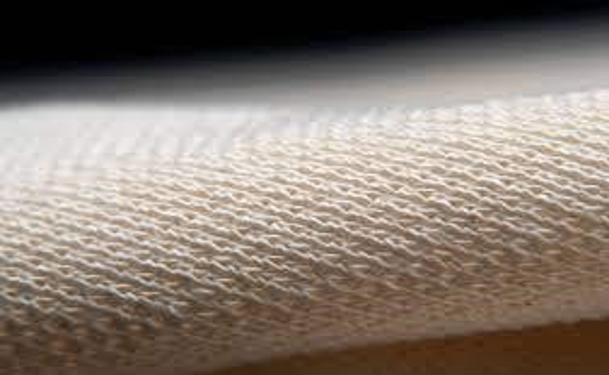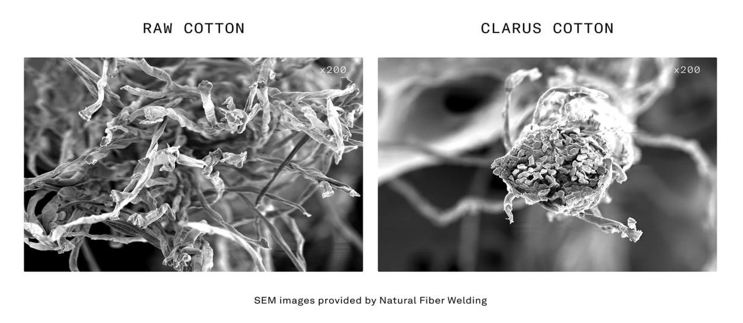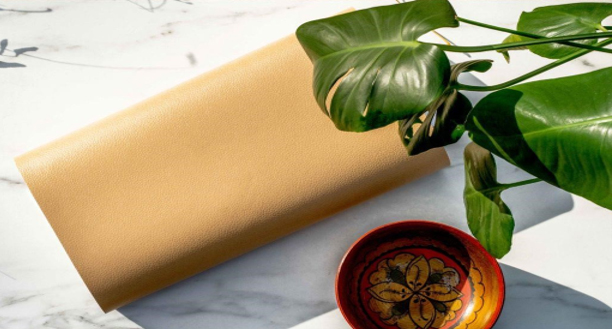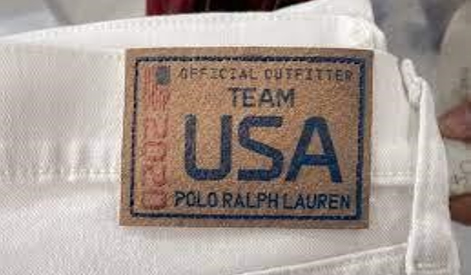2021/9/17
Rnewables
Transitioning the Soft-Goods Material Industry such as Plastic from Petroleum
by Suzanne Forcese
Interview with Dr. Luke Haverhals, Founder and CEO of Natural Fiber Welding & Research Professor of Chemistry, Bradley University, Illinois
“We believe that people deserve access to materials that do not compromise on performance, creativity or cost. Doing this will enable people everywhere to live more abundantly with less conflict globally over finite fossil resources and without the negative impacts of petrochemicals.” --Dr. Luke Haverhals
Illinois based tech start-up Natural Fiber Welding (NFW), one of the 100 Technology Pioneers from the World Economic Forum (2021), is setting out to revolutionize the materials industry by leveraging the diversity and abundance of plants.
“NFW was founded in 2015 after years of research and a breakthrough I made while working as a chemistry professor at the U.S. Naval Academy.”, says Haverhals. In short, he discovered that when natural fibers are blended with an appropriate ionic fluid it enables them to fuse with different neighboring fibers.
“More new plant matter grows in an average day on Earth than the total of all the petroleum-derived materials produced.
“9.1B tons – that's the amount of plastic that has been produced since the 1950s. We’ve depended on plastic for the materials we wear and live in. Now we're drowning in it.”

CLARUS™ is the name given to a set of “fiber welding” technologies invented by Dr. Luke Haverhals. Green-chemistry principles and closed-loop processes revitalize natural recycled inputs like cotton, wool, and hemp. This is accomplished by precise manipulation of molecular bonding representing a new paradigm in performance that comes without sacrificing the planet.
NFW’s innovative scientific process of precisely manipulating intermolecular bonding in natural polymers creates more of these bonds and more bonds mean stronger fabrics. It is a match-up to performance previously only seen in synthetics, minus the net sum synthetic pollution to delicate water-based ecosystems and the resulting toxins to animals and people.

“To ‘weld’ is to re-shape, and that’s exactly what we’re doing with natural materials, reformatting natural fibers into new forms that are stronger and better performing than their original state,” Haverhals said.

MIRUM™ is a line of complex leather-like composites without the use of polyurethane, synthetic binders and zero use of plastics. “We use agricultural waste streams for our ingredients, source FSC certified and regenerative rubber, and give recycled fibers new life with never-before-possible performance capabilities. MIRUM is certified USDA 100% biobased,” Dr. Haverhals told WATERTODAY.
“The real impact of synthetics is on water – both during production, during use, and when not disposed of properly. Synthetics are generally thought to require less water consumption than other fibers, but this is not the case when one considers the full life cycle. Synthetic fabrics shed microfiber pollutants during both wearing and washing.”
Plants, Not Plastics™
“Conventional plastics are derived from plants that lived long ago. Bioplastics are generally made from plants that lived relatively recently. Generally speaking, almost all plastics – plant-based or not, have problems in terms of ‘where they come from’ and ‘where they go to’.”
- Now that infrared spectroscopy/imaging is more widely available, massive greenhouse gas profile of plastics is becoming known, pointing to massive unreported methane emissions by the oil and gas industry.
- Because the vast majority of plastics must be chemically broken down and then (re) synthesized, using heat and/or energy, the small number of ‘recycled plastics’ don’t significantly diminish greenhouse emissions.
- The plastics industry has increasingly begun to market bioplastics as ‘plant-based’ and/or ‘biotech’. However, the carbon footprints are only incrementally improved, and the same nano and microplastics pollution problems exist at the end of their lifecycles. This type of bio-replacement for plastics also lacks sufficient circularity to be reused in cost effective ways.
“Because products like shoes and furniture are made of complex mixtures of materials, the vast majority of conventional plastics and bioplastics either end up in landfills where they leach harmful chemicals, or get incinerated, releasing more greenhouse gases. Humanity cannot endlessly pollute the Earth these ways.
“The problem with synthetic loops is that they are leaky and relatively inefficient. Plastics are only scaled to about 1/5th of the global population. Plastic, even when recycled is still plastic. Plastics will always be foreign pollutants within natural systems.”
A Different Approach
“NFW’s production systems are categorically unique. We use plants and biomass with an approach of ‘less is more’. We make complex composites that are allnatural and in ways that preserve the nutrient qualities of the natural inputs.
“This is revolutionary, because it means we are not emitting emissions by breaking biomass down, nor are we emitting while building biomass into something new.”

That ‘something new’ has captured the interest of over 700 brand name customers that NFW is presently working with to develop products that use the NFW ecosystem – technologies using the abundance and diversity of plants that already exist.
The Vision
“Clearly, humanity finds itself at a tipping point, and solving the destructive nature of our current conventional supply chains is critical.
“The NFW Team is working on the supply chain that will work for as long as photosynthesis works on planet Earth.
“We are focused on delivering materials that perform so that more people can live better with less conflict by reducing (over) dependence on finite renewable resources and eliminating pollution in water, land, and air that comes from ‘leaky’ synthetic systems.”
|